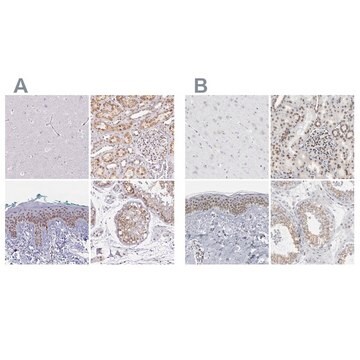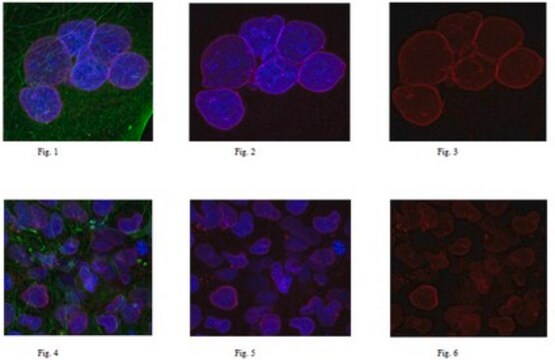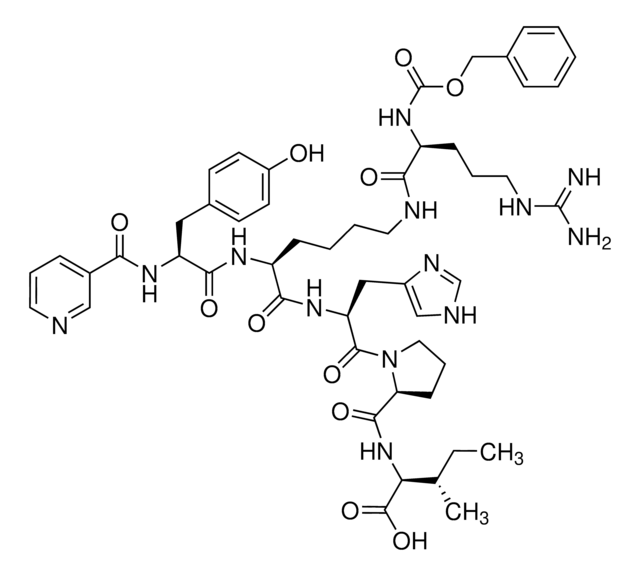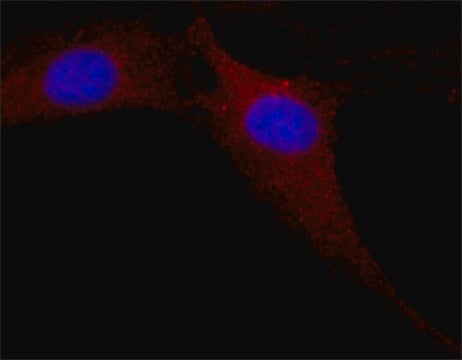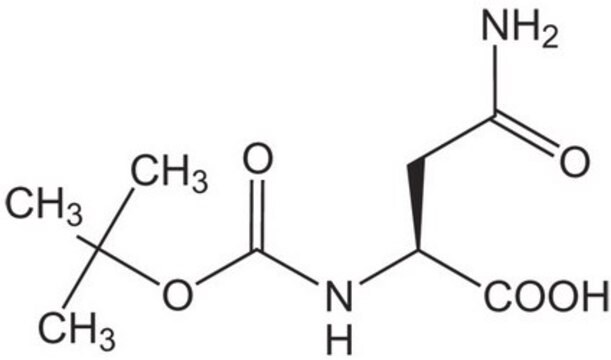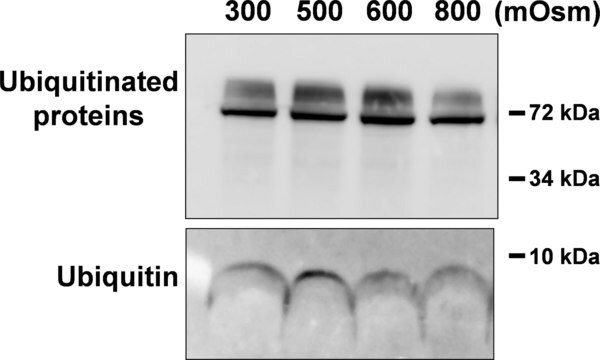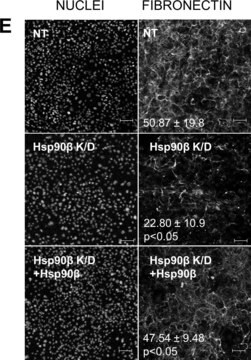ABN2288
Anti-Nesprin-2/SYNE2
Synonym(e):
KASH domain-containing protein 2, KASH2, Nuclear envelope spectrin repeat protein 2, Nucleus and actin connecting element protein, Protein NUANCE, Synaptic nuclear envelope protein 2, Syne-2
About This Item
Empfohlene Produkte
Biologische Quelle
rabbit
Qualitätsniveau
Antikörperform
purified antibody
Antikörper-Produkttyp
primary antibodies
Klon
N/A, polyclonal
Mol-Gew.
calculated mol wt 782.75 kDa
observed mol wt ~135 kDa
Speziesreaktivität
mouse
Speziesreaktivität (Voraussage durch Homologie)
canine
Verpackung
antibody small pack of 100 μL
Methode(n)
immunocytochemistry: suitable
western blot: suitable
Isotyp
IgG
Epitopsequenz
N-terminal
Protein-ID-Hinterlegungsnummer
UniProt-Hinterlegungsnummer
Lagertemp.
-10 to -25°C
Angaben zum Gen
mouse ... Syne2(319565)
Allgemeine Beschreibung
Spezifität
Immunogen
Anwendung
Evaluated by Immunocytochemistry in NIH3T3 cells.
Immunocytochemistry Analysis: A 1:1,000 dilution of this antibody detected Nesprin-2/SYNE2 in NIH3T3 cells.
Tested applications
Western Blotting Analysis: A representative lot detected Nesprin-2/SYNE2 in Western Blotting application (Luxton, G.W., et. al. (2010). Science. 329(5994); 956-9).
Western Blotting Analysis: A 1:1,000 dilution from a representative lot detected Nesprin-2/SYNE2 in NIH-3T3 overexpressing Nesprin-2.
Immunocytochemistry Analysis: A representative lot detected Nesprin-2/SYNE2 in immunocytochemistry application (Zhang, Q., et. al. (2019). Curr Biol. 29(17); 2826-2839).
Note: Actual optimal working dilutions must be determined by end user as specimens, and experimental conditions may vary with the end user.
Physikalische Form
Lagerung und Haltbarkeit
Sonstige Hinweise
Haftungsausschluss
Sie haben nicht das passende Produkt gefunden?
Probieren Sie unser Produkt-Auswahlhilfe. aus.
Lagerklassenschlüssel
11 - Combustible Solids
WGK
WGK 1
Flammpunkt (°F)
Not applicable
Flammpunkt (°C)
Not applicable
Analysenzertifikate (COA)
Suchen Sie nach Analysenzertifikate (COA), indem Sie die Lot-/Chargennummer des Produkts eingeben. Lot- und Chargennummern sind auf dem Produktetikett hinter den Wörtern ‘Lot’ oder ‘Batch’ (Lot oder Charge) zu finden.
Besitzen Sie dieses Produkt bereits?
In der Dokumentenbibliothek finden Sie die Dokumentation zu den Produkten, die Sie kürzlich erworben haben.
Unser Team von Wissenschaftlern verfügt über Erfahrung in allen Forschungsbereichen einschließlich Life Science, Materialwissenschaften, chemischer Synthese, Chromatographie, Analytik und vielen mehr..
Setzen Sie sich mit dem technischen Dienst in Verbindung.